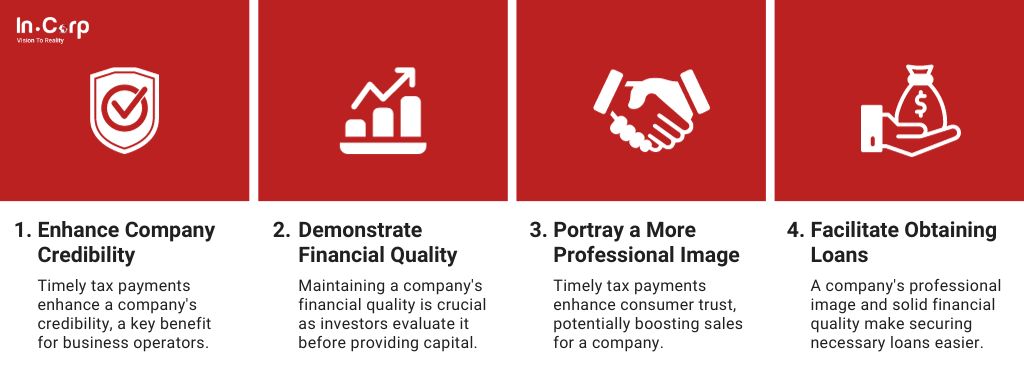Withholding tax is crucial in the tax system. It influences a range of financial transactions, from businesses importing goods to those receiving income from state-owned enterprises. This article seeks to simplify Indonesia’s tax framework, offering insights into its application and impact on local businesses.
Withholding tax in Indonesia
Withholding tax is a tax collection system that the government authorizes. The system lets taxpayers deduct or collect tax from income payments to the income recipients and remit it to the national treasury.
In other words, this tax system involves paying taxes by a third party. At the end of the tax year, the tax withheld and remitted to the state treasury can be used as a tax reduction or tax credit. This is provided that the recipient can provide proof of withholding or collection.
The importance of tax revenue from withholding tax
According to the Directorate General of Taxes (DJP), tax revenues through the withholding tax system significantly contribute to the growth of non-oil and gas income tax (PPh).
For instance, from January to July 2019, the most significant non-oil and gas tax revenue came from Article 21 Income Tax, with double-digit growth of 12.31%.
Recognizing the importance of this tax in securing the state’s revenue in the tax sector, the Directorate General of Taxes mandates all tax withholders and collectors to remit and report their tax obligations following the prevailing regulations.
Read more: Positive Investment List improves investment in Indonesia
Is withholding tax the same as a self-assessment system?
Self-assessment is a tax system where taxpayers are solely responsible for determining and reporting their tax liabilities. It differs from withholding tax, which involves relying on others to manage tax obligations.
This tax applies to all business-related income in Indonesia, per the Directorate General of Taxes Regulation No. Per-70/PJ/2007. This regulation is also governed by Law No.7 of 1983, particularly concerning installment payments and final tax collection.
Types of withholding tax in Indonesia
Several types of withholding tax in Indonesia with its brief explanation as follows:
According to Article 21
As stipulated under the income tax law (PPh), Article 21, employers must deduct taxes from their employees’ salaries and severance payments.
The deducted tax is then remitted to the state treasury on behalf of the employee. The withholding tax on salary, as specified in Article 21, is considered final, and the amount withheld can be proclaimed as a tax credit when the employee files their annual personal income tax return.
According to Article 22
Withholding tax under Article 22 pertains to companies involved in various activities such as importing goods, receiving income from state-owned enterprises, purchasing specific products, or acquiring extravagant luxury items.
A 2.5% withholding tax rate is applied to imported goods for registered importers, while unregistered importers face a 7.5% rate.
However, companies located in Free Trade Zones are exempt from Article 22 withholding tax on the importation of capital goods and raw materials.
The withheld tax of 1.5% is not considered final and can be credited when the company files its annual corporate income tax return, provided that valid withholding tax documents are available. Article 22 also applies to certain local purchases.
The tax rates applied to these transactions are:
| Transaction | Applicable Tax Rates |
| Buying oil fuel from state-owned or private gas stations | 0.25% or 0.30% based on the selling price |
| Purchasing oil fuel by entities other than gas stations | 0.30% |
| Purchasing gas fuel | 0.30% |
| Buying lubricants | 0.30% |
| Manufacturers of cement, steel, automotive goods, paper, and cigarettes | 0.1% to 0.45% when selling to agents or distributors |
Goods categorized as highly luxurious are subject to a 5% withholding tax based on their selling prices; these include:
- cruisers
- yachts
- private aircraft
- helicopters
- houses
- land
- apartments
- condominiums
- four-wheel automobiles (sedans, jeeps, SUVs, MVPs, and minibusses)
- two or three-wheel motorcycles
Exemptions under withholding tax article 22 cover specific scenarios, such as:
- the import of goods for disaster relief donations
- goods for nature conservation
- items used in upstream oil and natural gas activities by certain production-sharing contractors
- purchases using School Operational Assistance (Bantuan Operasional Sekolah) funds
- state-owned enterprise payments up to IDR 100 million (not treated separately)
- import of science and technology books
- payments by a government body acting as a withholding tax collector
A tax resident who does not possess a taxpayer identification number (NPWP)is subject to an elevated tax rate of 100% compared to the standard rates.
According to Article 23
Under Article 23, specific income payments made to tax residents are subject to withholding tax at 2% or 15%. Payments subject to a 15% withholding tax rate include:
- dividends
- interest
- swap premiums
- loan guarantee fees
- royalties
- prizes
- awards
- bonuses
On the other hand, payments subject to a 2% withholding tax rate comprise rental payments for property (excluding land and buildings). Additionally, remuneration is included for various services such as:
- technical
- management
- construction
- consulting
- actuarial
- legal
- accounting
- design
- waste management
- cleaning services
According to Article 26
Income received by non-Indonesian taxpayers is taxed at a final withholding rate of 20%. Article 26 covers specific types of income, including dividends, interest, royalties, compensation, prizes, awards, and swap premiums.
According to Article 4 (2)
Article 4, paragraph 2 imposes final withholding tax on various transactions. These transactions include rent for land and buildings, property rights transfers, construction services, IPO share sales, interest on savings, bonds, lottery prizes, and individual dividends.
According to Article 15
Services related to shipping and airline operations by domestic or foreign firms are subject to withholding tax under Article 15, with the following tax rates:
| Services | Tax Rates |
| Charter of local airline | 1.8% |
| Local shipping company | 1.2% |
| Foreign shipping and airline | 2.64% |
The benefits of withholding tax for businesses

This tax provides several benefits for businesses, as described below:
1. Enhance company credibility
Companies with high credibility consistently pay their taxes on time. Therefore, one of the benefits of taxation for business operators is to enhance their company’s credibility.
2. Demonstrate financial quality
Investors typically assess the financial quality of a company before providing capital. Business operators must, therefore, maintain their company’s financial quality.
3. Portray a more professional image
By consistently paying taxes on time, consumers are more likely to trust and engage with a company’s services or products, which can boost sales.
4. Facilitate obtaining loans
Loans are a fundamental need for any company. A company can more easily secure its required loans by maintaining a professional image and demonstrating solid financial quality.
Stay compliant with InCorp Indonesia
Managing withholding tax can be intricate and time-consuming. InCorp Indonesia aims to simplify your business operations and enable you to concentrate on business growth, providing payroll processing and accounting services.
Connect with our experts to comply with tax payments and filings by completing the forms below.
Get in touch with us.
What you'll get
A prompt response to your inquiry
Knowledge for doing business from local experts
Ongoing support for your business
Disclaimer
The information is provided by PT. Cekindo Business International (“InCorp Indonesia/ we”) for general purpose only and we make no representations or warranties of any kind.
We do not act as an authorized government or non-government provider for official documents and services, which is issued by the Government of the Republic of Indonesia or its appointed officials. We do not promote any official government document or services of the Government of the Republic of Indonesia, including but not limited to, business identifiers, health and welfare assistance programs and benefits, unclaimed tax rebate, electronic travel visa and authorization, passports in this website.



